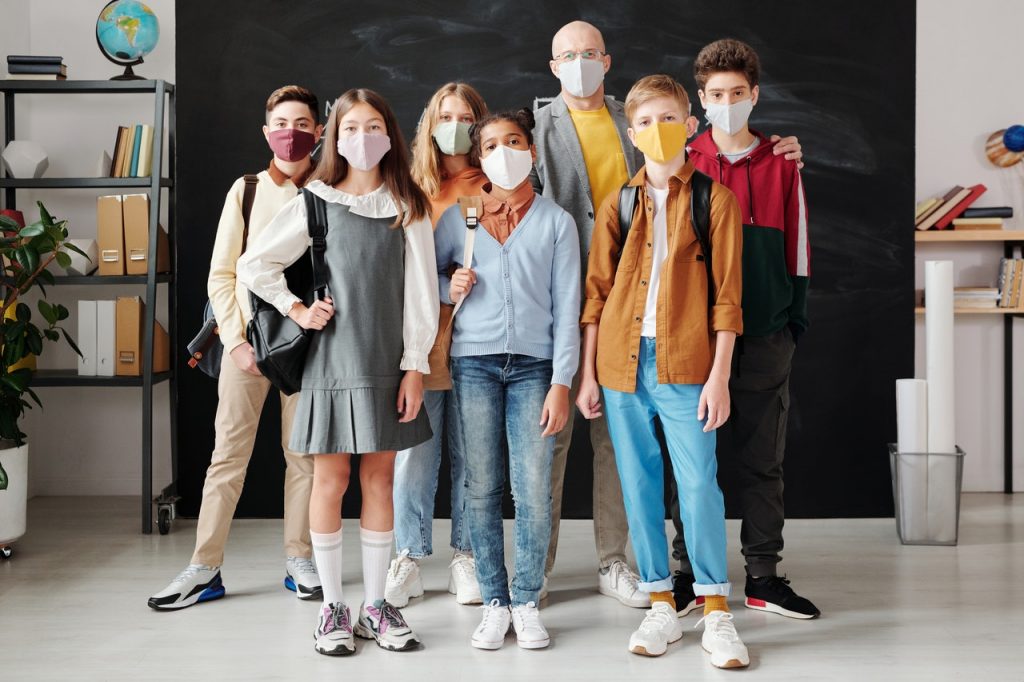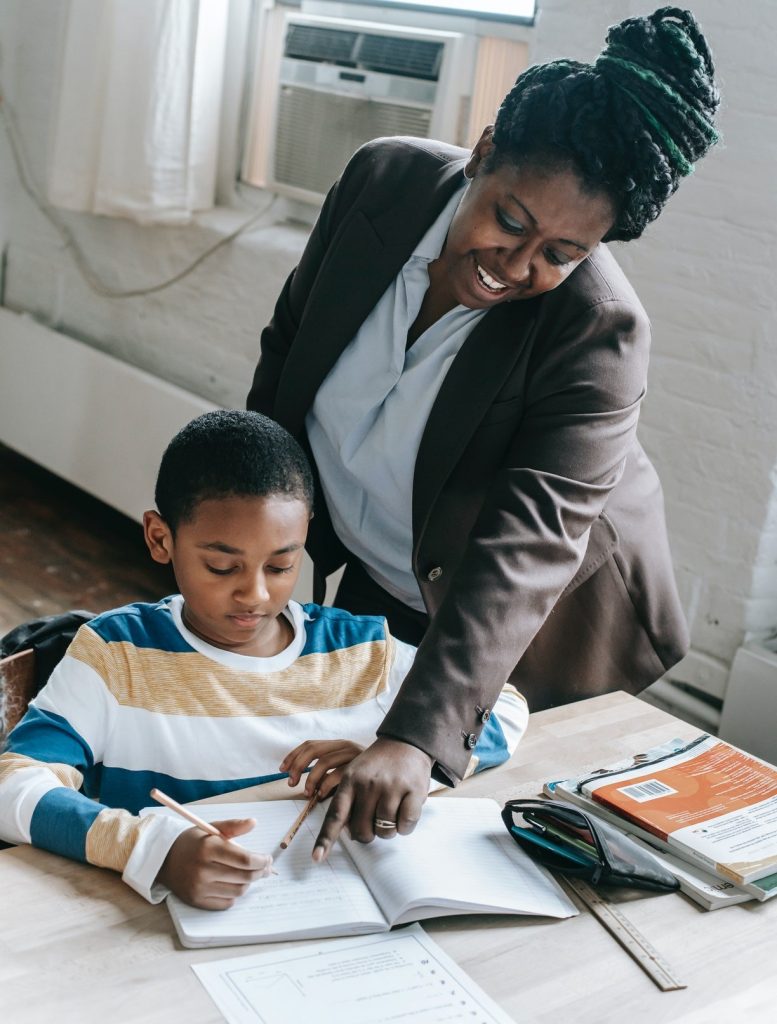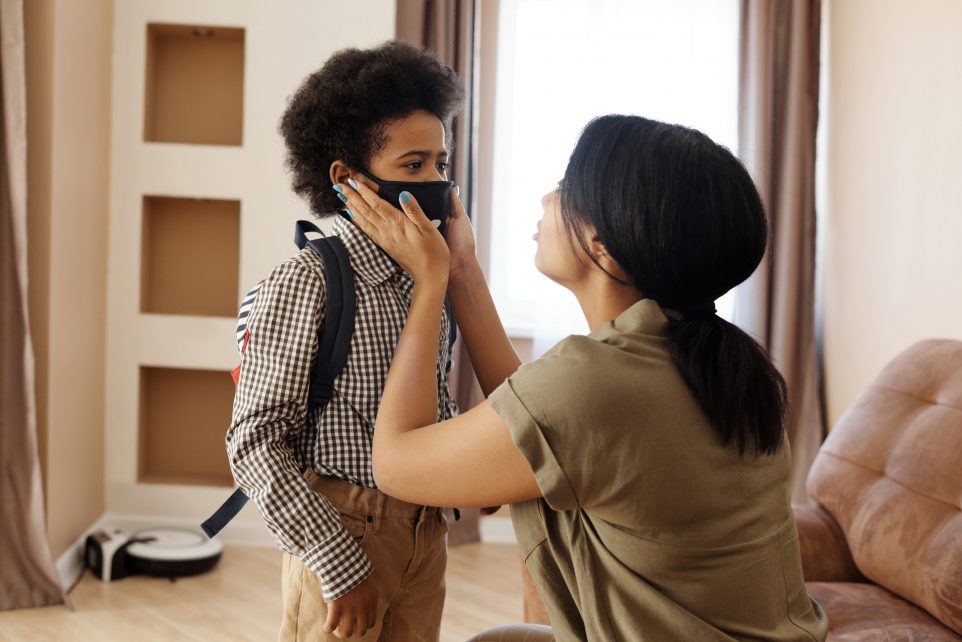The effects of COVID-19 have been devastating. We’re all familiar with the political and economic turmoil, but the pandemic’s reach is longer still. Let’s not forget that children of all ages have struggled through an overburdened education system for months, the results of which are beginning to be realized. Here’s how COVID-19 impacted students and what you can do to help.
The Failures of Online School

When schools transitioned to online platforms in 2020, it was pandemonium. A study from the American Enterprise Institute likens the process to “trying to build a plane as it is going down the runway.” Teachers scrambled to adopt new methods of syllabus delivery without due warning. Parents frantically tried to set up proper education arrangements for their kids. And, tragically, students were left behind.
Even when systems like Microsoft Teams and Google Classroom were working correctly, mismanagement left kids hanging out to dry. Many students were unable to complete or submit their work, and not for lack of trying—they never knew they had work to do in the first place! In cases like this, there was little to no communication between teachers and their students, and students suffered the consequences.
Additionally, the online education model worked on the assumption that students had the technological access to attend their classes and complete their assignments. However, not all students had this capability. A study from July 2020 states that “the rapid changes . . . caused painful adjustments and highlighted shortcomings in unequal access to technology.” The unequal access to technology barred many students from obtaining a true education during the online era, and the negative results of that barrier might be permanent.
Struggling Through the Quarter System

Once schools finally reopened, COVID-19 impacted students in a different way. Schools established cohorts to stop the spread of the virus, and high schools shifted from the semester system to the quarter system (what is the quarter system?). Many students found it difficult to adjust to the breakneck pace demanded by the quarter system, and this led to stress, lower confidence levels, and educational gaps.
The accelerated delivery of the syllabus severely affected the handling of tests and exams. Students were writing at least one unit test per class every week! Without enough time to study and mentally prepare, students fell prey to anxiety. To help their students cope, teachers often allowed their students to bring a ‘cheat sheet’ to their tests—a piece of paper with absolutely anything written on it. So, not only were students not properly learning the material, but they weren’t given much incentive to explore the content on their own and develop strong study habits either.
Even now, after the 2020-2021 school year, students are feeling the effects. Some high school students, dissatisfied with their performance in quarter-system classes, are waiting to retake those classes. These students will have to fit those classes into their already full schedules, either replacing classes at their current grade level (which might delay graduation) or taking online classes alongside their in-person classes.
The Lasting Effects of How COVID-19 Impacted Students
While it remains to be seen exactly how deeply COVID-19 impacted students, we can speculate as to the future. Sir John Daniel, chancellor of Acsenda School of Management, made a statement that “[m]any in the COVID-19 cohort of students will worry about suffering long-term disadvantages compared to those who studied ‘normally’.”
Though it might be years before we fully understand the extent of COVID-19’s impact, it isn’t hard to imagine the long-term disadvantages to which Daniel refers. Many students will move forward, a number of them with gaps in their education, viewing school in a negative light due to their troubling experiences. Once that educational bridge is burned, it takes a lot of time and effort to rebuild.
Additionally, many families tried homeschooling during quarantine. While some found success, others did not, and those who did not found their parent-child relationship strained. This sort of strain can compound and cause problems in a child’s home and educational life later on.
Furthermore, many grade 12 students had their transcripts rushed and their final exams cancelled, leading to a muddying of the stream from high school to post-secondary. This, combined with the way colleges and universities have had to repackage their services, means the number of students with new post-secondary degrees is expected to drop. If this happens, the already exhausted economy will take longer to revive as high-skill positions are left vacant.
What Can You Do to Help?

This all sounds very grim, but don’t lose hope! You can take an active role in your child’s life to help them recover. We’re all in this together, and we’d love to see your child thrive.
Fill in Gaps with Workbooks
There are plenty of great workbooks available for children who have missed grade-level content. Using some of our homeschool tips courtesy of our founder, Amber Scotchburn, you can help your child catch up or get ahead. This approach works particularly well with elementary-aged kids.
Sign up for Online School or Cross Enrolment
The calamity of online school in 2020 may have left a bitter taste in your mouth, but not all online schooling is like that! There are schools fully dedicated to offering comprehensive, immersive, and effective online programs for students of all ages. North Island Distance Education (NIDES) and Island Connect Ed (ICE) are good examples.
We also highly recommend cross enrolment as a way of renewing interest in learning. Students can take part in a blend of online and in-person school (at more than one location) depending on their interests. Our founder, Amber Scotchburn, tried it with her eldest son, and he loved it!
Participate in Extra-Curricular Classes
If you want to show your kids that education can be fun, extra-curricular classes are perfect. Learning interesting skills in a less-than-traditional setting is a great way to spark excitement in students. This can look like anything from taking piano lessons to joining a soccer team, but you can go for more of a class-like approach as well.
Outschool is a site offering tons of virtual classes taught by certified instructors. Students can learn everything (and we mean everything!)—guitar, cooking, Greek, mindfulness, engineering, finances, Dungeons & Dragons… the list goes on! Outschool also offers subjects normally taught in school (math, English, etc.), so it’s great for helping kids catch up too.
Hire a Tutor

COVID-19 impacted students heavily, and tutors have been helping kids find success amid the tumult. In times like these, a strong one-on-one connection can make all the difference in a child’s life. Studies have shown that tutoring produces dramatically positive results, and those are the results kids need right now.
If you’ve been putting off hiring a tutor, it’s not too late. At Tutoring…With a Twist*, we would love to match your child with one of our enthusiastic and knowledgeable tutors. Success is just a call away—don’t hesitate to contact us for more information.
If you’d like more useful tips and information, check out our Facebook page and YouTube channel.
*Services provided by With a Twist Education Ltd.

